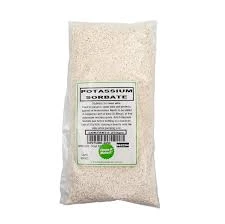
Aluminum Hydroxide Treatment for Managing Peptic Ulcer Disease Symptoms and Relief
The Role of Aluminum Hydroxide in Managing Peptic Ulcer Disease
Peptic ulcer disease (PUD) is a common gastrointestinal condition that involves the formation of open sores in the lining of the stomach or the first part of the small intestine, known as the duodenum. This painful condition can be caused by excessive production of stomach acid, infection with Helicobacter pylori, prolonged use of nonsteroidal anti-inflammatory drugs (NSAIDs), and other factors. One therapeutic option for managing PUD is the use of aluminum hydroxide, a compound that has been employed for decades in the treatment of various gastrointestinal disorders, including ulcers.
What is Aluminum Hydroxide?
Aluminum hydroxide [Al(OH)3] is an inorganic compound that acts as an antacid. It works by neutralizing stomach acid, which can help alleviate symptoms associated with hyperacidity, such as heartburn and discomfort. The mechanism of action involves the chemical reaction between aluminum hydroxide and hydrochloric acid (HCl) present in the stomach. This reaction results in the formation of aluminum chloride and water, thereby reducing acidity and providing symptomatic relief.
Benefits of Aluminum Hydroxide in PUD
1. Symptomatic Relief One of the primary benefits of aluminum hydroxide is its ability to provide rapid symptomatic relief for patients suffering from peptic ulcers. By neutralizing excess stomach acid, it helps to reduce pain and discomfort associated with ulceration. This effect can significantly enhance the quality of life for patients experiencing acute flare-ups.
2. Barrier Formation Aluminum hydroxide also promotes the formation of a protective barrier over the ulcerated area, which can promote healing. This protective mechanism can shield the ulcer surface from additional irritants, including stomach acid and food, thereby allowing time for the tissue to heal.
aluminum hydroxide for peptic ulcer disease

3. Combination Therapy Aluminum hydroxide is often used in conjunction with other medications, such as proton pump inhibitors (PPIs) or antibiotics targeting H. pylori infections. This combination therapy approach can be particularly effective, as it addresses both the symptoms and underlying causes of PUD, enhancing overall treatment outcomes.
Potential Side Effects and Considerations
While aluminum hydroxide is generally well-tolerated, it is not without potential side effects. Common adverse effects include constipation, which can occur due to the aluminum ion's ability to bind with phosphate in the intestines. Consequently, this can lead to decreased phosphate absorption, potentially leading to conditions such as osteomalacia or muscle weakness in chronic users.
Moreover, long-term use of aluminum hydroxide may result in the accumulation of aluminum in the body, raising concerns, especially in patients with compromised kidney function. Therefore, it is crucial for individuals considering aluminum hydroxide therapy to consult with healthcare providers to assess their specific health conditions and potential risks associated with prolonged use.
Conclusion
Aluminum hydroxide remains a viable option for the management of peptic ulcer disease, particularly in providing symptomatic relief and promoting healing through its antacid properties. Its role in combination therapy can significantly enhance treatment efficacy, especially in patients with H. pylori infections or those requiring additional acid suppression. However, as with any medication, the benefits must be weighed against potential side effects and risks. Patients should engage in open dialogue with their healthcare providers to determine the most suitable treatment approach for their specific circumstances. By appropriately utilizing aluminum hydroxide, patients can better manage their peptic ulcer disease and work towards achieving a healthier gastrointestinal environment.
-
Pure Sodium Dichloroisocyanurate Dihydrate | Powerful DisinfectantNewsAug.29,2025
-
Industrial Chemicals: Quality & Purity for Every IndustryNewsAug.28,2025
-
Nitrile Rubber Honoring Strict Production StandardsNewsAug.22,2025
-
Aspartame Ingredients Honoring Food Safety ValuesNewsAug.22,2025
-
Fertilizer for Balanced Plant NutritionNewsAug.22,2025
-
Cyanide Gold Processing with High Purity AdditivesNewsAug.22,2025
-
Formic Acid in Textile Dyeing ApplicationsNewsAug.22,2025
Hebei Tenger Chemical Technology Co., Ltd. focuses on the chemical industry and is committed to the export service of chemical raw materials.
-

view more DiethanolisopropanolamineIn the ever-growing field of chemical solutions, diethanolisopropanolamine (DEIPA) stands out as a versatile and important compound. Due to its unique chemical structure and properties, DEIPA is of interest to various industries including construction, personal care, and agriculture. -

view more TriisopropanolamineTriisopropanolamine (TIPA) alkanol amine substance, is a kind of alcohol amine compound with amino and alcohol hydroxyl, and because of its molecules contains both amino and hydroxyl. -

view more Tetramethyl Thiuram DisulfideTetramethyl thiuram disulfide, also known as TMTD, is a white to light-yellow powder with a distinct sulfur-like odor. It is soluble in organic solvents such as benzene, acetone, and ethyl acetate, making it highly versatile for use in different formulations. TMTD is known for its excellent vulcanization acceleration properties, which makes it a key ingredient in the production of rubber products. Additionally, it acts as an effective fungicide and bactericide, making it valuable in agricultural applications. Its high purity and stability ensure consistent performance, making it a preferred choice for manufacturers across various industries.





